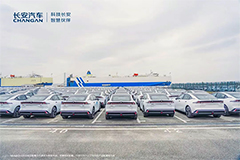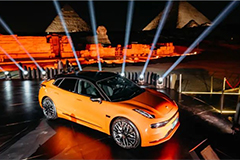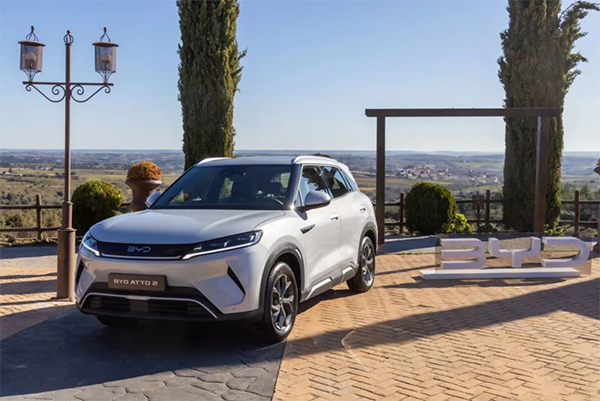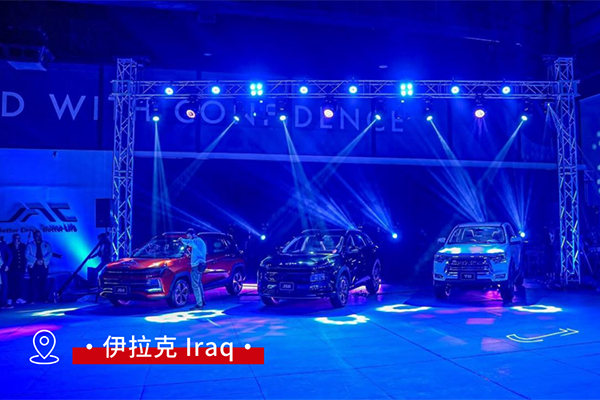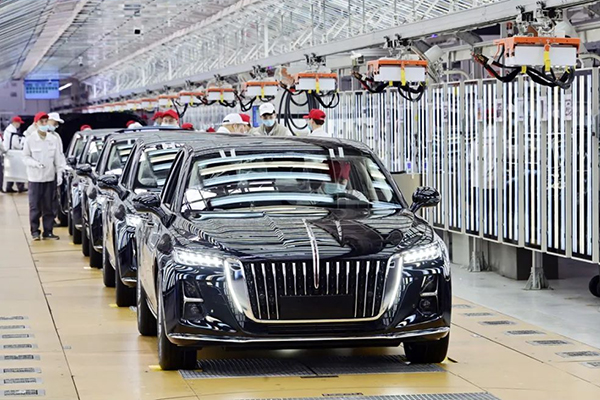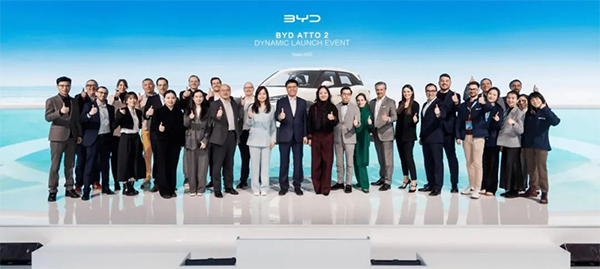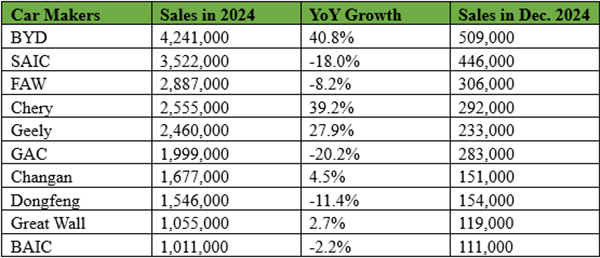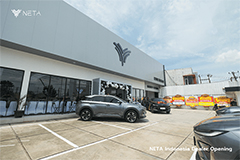CAAM data shows that in May, passenger car exports reached 397,000 units, down 7.4% month-on-month but up 22.1% year-on-year. Commercial vehicle exports reached 84,000 units, up 12.6% month-on-month and 32.7% year-on-year. From January to May, passenger car exports totaled 1.937 million units, up 32% year-on-year, while commercial vehicle exports totaled 372,000 units, up 27.9% year-on-year.
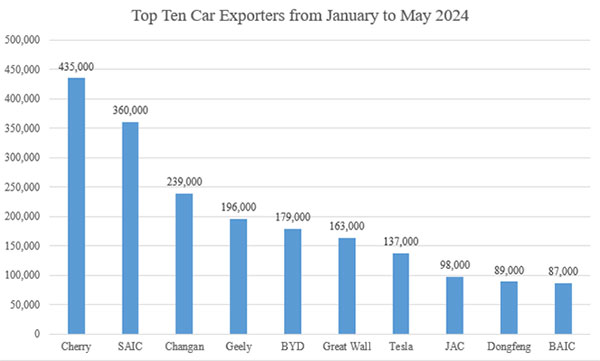 In May, exports of traditional fuel vehicles reached 383,000 units, down 1.8% month-on-month but up 36.6% year-on-year. Meanwhile, exports of new energy vehicles reached 99,000 units, down 13.3% month-on-month and 9% year-on-year.
In May, exports of traditional fuel vehicles reached 383,000 units, down 1.8% month-on-month but up 36.6% year-on-year. Meanwhile, exports of new energy vehicles reached 99,000 units, down 13.3% month-on-month and 9% year-on-year.
In the first five months, exports of traditional fuel vehicles totaled 1.789 million units, up 37.5% year-on-year, while exports of new energy vehicles totaled 519,000 units, up 13.7% year-on-year. In May, exports of pure electric vehicles reached 77,000 units, down 13.8% month-on-month and 22.3% year-on-year, while exports of plug-in hybrid vehicles reached 22,000 units, down 11.6% month-on-month but up 1.3 times year-on-year. From January to May, exports of pure electric vehicles totaled 414,000 units, down 1.8% year-on-year, and exports of plug-in hybrid vehicles totaled 105,000 units, doubling year-on-year.
Three Chinese automakers focus on the Brazilian market.
In May, Chery exported 92,000 vehicles, up 24.8% year-on-year, accounting for 19.2% of total exports. Compared with the same period last year, BYD's export growth was the most significant, with exports reaching 38,000 units, increaseed by 2.4 times. In the first five months, among the top ten exporting companies, BYD, Great Wall, and Changan performed outstandingly in terms of growth rate. BYD exported 179,000 units, up 1.6 times year-on-year; Great Wall exported 163,000 units, up 65.2% year-on-year; Changan exported 239,000 units, up 64.1% year-on-year.
In terms of export destinations for Chinese automakers this year from January to April, Russia, Mexico, and Brazil ranked as the top three, with Belgium, Brazil, and the UK being the top three markets for exports of new energy vehicles.
Regarding the layout plans of Chinese brand automakers, exporting to Brazil also faces the issue of localized production. After all, while Brazil is recovering from new energy tariffs, it has also been extending an olive branch to Chinese automakers in recent years.
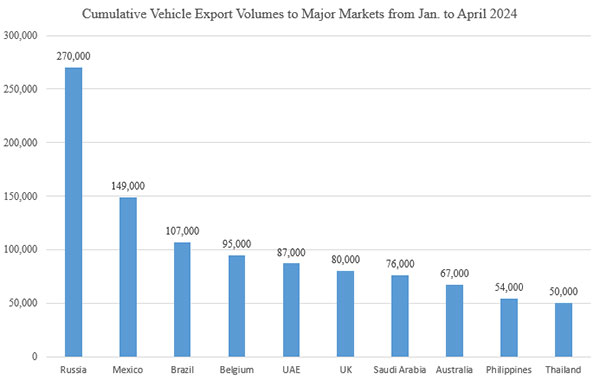 As the first Chinese automaker to establish a factory in Brazil, Chery established production plant in Brazil 10 years ago, with an annual output of 150,000 units. According to reports, Chery has begun a large-scale renovation of its Brazilian factory to accommodate the production of electrified models. Two years ago, Great Wall Motors held a "Brazilian factory handover and strategic release ceremony" in São Paulo state, formally taking over the Iracemápolis factory from the former Daimler Group, which is now in operation. According to plans, Great Wall Motors will invest over 10 billion reais (approximately 13.7 billion yuan) in the next 10 years to establish it as the fourth largest global production base, radiating the entire Latin American new energy vehicle market.
As the first Chinese automaker to establish a factory in Brazil, Chery established production plant in Brazil 10 years ago, with an annual output of 150,000 units. According to reports, Chery has begun a large-scale renovation of its Brazilian factory to accommodate the production of electrified models. Two years ago, Great Wall Motors held a "Brazilian factory handover and strategic release ceremony" in São Paulo state, formally taking over the Iracemápolis factory from the former Daimler Group, which is now in operation. According to plans, Great Wall Motors will invest over 10 billion reais (approximately 13.7 billion yuan) in the next 10 years to establish it as the fourth largest global production base, radiating the entire Latin American new energy vehicle market.
Recently, BYD's large-scale production base complex located in Camacari City, Bahia State, Brazil, has also officially commenced operations. The project consists of three factories: one focusing on electric buses and truck chassis production, one for the production of new energy passenger vehicles, and one for processing lithium iron phosphate battery materials. The new energy passenger vehicle production line will cover pure electric and plug-in hybrid models, with an estimated annual production capacity of approximately 150,000 vehicles by 2025.
In 2023, Brazil imported approximately 42,000 passenger vehicles from China, totaling $1.086 billion. Among the top 20 brands with the highest passenger car sales in Brazil in 2023, three were Chinese brands: Chery, BYD, and Great Wall. According to data from the China Passenger Car Association, from January to April this year, BYD had the highest export volume of new energy vehicles in the Brazilian market, with cumulative sales of 21,901 units, followed by Great Wall Motors with 2,564 units. Including fuel vehicles, Chery Group exported 18,060 vehicles in Brazil from January to April, while Great Wall Motors exported 8,016 vehicles. Export volumes from JAC Motors and BAIC Motors to Brazil were both over 100 units.



